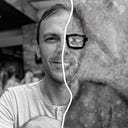Nobody understands quantum physicists

Chris, you got the quote wrong. It’s “nobody understands quantum physics.” Surely we have a problem with quantum physics, not physicists. I mean, look at all these quotes from people you are supposed to admire!
“Quantum mechanics makes absolutely no sense.” — Roger Penrose
“If it is correct, it signifies the end of physics as a science.” — Albert Einstein
“If you are not completely confused by quantum mechanics, you do not understand it.” — John Wheeler
“I do not like it, and I am sorry I ever had anything to do with it.” — Erwin Schrodinger
Cute. But no one would guide their philosophical attitudes based on what a bunch of dead guys didn’t understand, right? I mean, who would do that? Quantum physicists, that’s who!
That, or they really do understand quantum physics but tout its mystery for other reasons. Who knows. I think it is safe to say that — independently of quantum physics — nobody understands quantum physicists.
Quantum teleology
Quantum physics is almost always taught chronologically. When you hear about quantum physics, you probably hear about a long list of 20th-century scientific heroes who uncovered the wild and untamed world behind our fingertips. The story has modest roots in Planck’s 1900 hypothesis that energy is discrete and usually crescendos with John Bell’s work on “spooky” entanglement in the ’60s. Not only do we learn about the experiments they performed and the theories they developed to explain them, but we also hear dramatizations of their conversations and caricatures of their personal philosophies.
Along the way, we discover that a piece of great machinery was simultaneously being created — quantum mechanics — which allowed graduate students to blindly turn the mathematical crank to make predictions about newer and more extreme experiments. We are told that generations of physicists would “shut up and calculate” to earn their degrees and professorships to eventually repeat the program again with the next cohort. The wild horse of quantum physics had been stabled but not tamed.
Sean Carroll wrote in the New York Times:
“Over the course of the 20th century, physicists decided that it was more important to put quantum mechanics to work than to understand how it works.”
As I respect Carroll a lot, I’ll charitably assume he was being intentionally provocative here since he wrote it during what looked like an aggressive marketing campaign for his new book. But the fact of the matter is that most practicing quantum physicists probably feel they understand quantum mechanics very well. After all, using a tool is exactly how you come to understand how it works. And this has consequences for his further argument.
Carroll wants to believe that a particular classical realist interpretation of quantum physics (the many-world interpretation), which he is a publicly known champion of, is not only true but also the path forward to a theory of everything. He concludes with:
“It’s possible — maybe even perfectly reasonable — to imagine that our inability to understand quantum mechanics itself is standing in the way.”
It’s also perfectly reasonable to say the opposite. That is, our obsession with a classical understanding of a theory that would be overthrown anyway is what is standing in the way.
The real problem with quantum physic(ist)s
With only one exception I know of, most quantum physicists are human. And while they don’t all speak English, they do communicate and understand the world with languages efficiently described by classical information. That is, they can all be encoded as strings of bits (1s and 0s) with little-to-no overhead.
If all the mixed messages about quantum physics confuse you, I want you to erase everything you know about it and memorize the next paragraph.
Quantum physics is a branch of science that describes highly isolated systems — things that don’t interact randomly with other stuff around them. Traditionally, these are small, like atoms, but now we can engineer artificial systems under high isolation. Anything that is extremely isolated requires quantum physics to describe accurately. The information such things encode is quantum information. If you attempt to use classical physics or classical information to make predictions or statements about such things, you may end up being very wrong.
That’s all there is to it. If “understanding” necessitates an intuitive description of the phenomenon, especially in terms of some classical realist interpretation, then the facts are now very clear: you can’t have it. Quantum information is mathematically inequivalent to classical information.
The quote “nobody understands quantum mechanics” is attributed to Richard Feynman (1965), and Carroll opens his opinion piece with it. But if Feynman were alive today, I think he’d contextualize it better. He might say, “quantum mechanics cannot be understood using classical physics and information — it must be understood in the language of quantum information.” Or, perhaps he’d be pithier and say, “nobody speaks quantum information.” Indeed, nearing the end of his career, he said, “Nature isn’t classical, dammit, and if you want to make a simulation of nature, you’d better make it quantum mechanical, and by golly, it’s a wonderful problem, because it doesn’t look so easy.” The workshop he said this at in 1981 is often considered the birthplace of quantum information and computation.
Just as people eventually stopped asking for a classically phrased reason, cause, or “understanding” of Newton’s inverse square law, they will eventually stop asking for a classical interpretation of quantum physics. We have a new language for gravity in Einstein’s relativity, just as we have a new language for quantum physics. No translation will ever be accurate, and there will always be room for interpretation.
